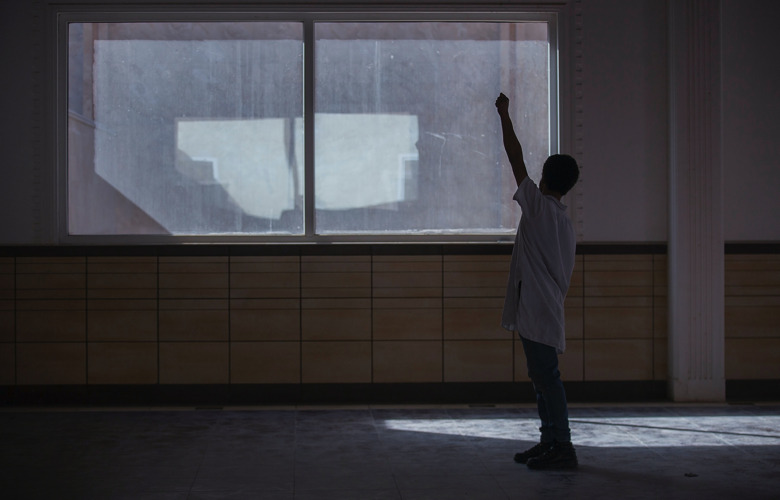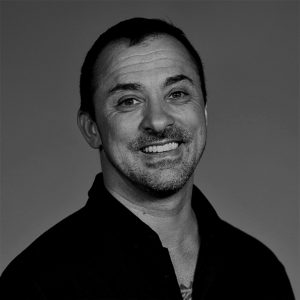
Augusto Boal was a Brazilian theatre director, writer, and politician. Between 1950 and 1960 he developed a new form of acting, ‘O Teatro do Oprimido’ (‘Theatre of the Oppressed’). This soon became famous all over Latin America and, later, in Europe as well.
Augusto Boal was born in 1931. He grew up in Rio de Janeiro.
Theatre fascinated Augusto during his childhood already. He participated in plays, but, even early on, his interest went further than just being on stage.
As a young man, Boal moved to New York. There, he studied chemical engineering as well as dramatic arts at Columbia University.
The School of Dramatic Arts at Columbia University was especially attractive to him. Because it gave him the opportunity to study playwriting with drama critic, historian, and artistic producer John Gassner.
In 1955, Boal finished his degree at Columbia and returned to Brazil.
There, Jose Renato, the artistic director at the Arena Theatre in Sao Paulo quickly snatched him up.
Boal’s work at the Arena Theatre led to his experimentation with new forms of theatre. Which would eventually have an immense influence and impact on traditional theatre practices.
Boal named the new forms of theatre he was developing ‘O Teatro do Oprimido’, the Theatre of the Oppressed.
In a political sense, Boal saw theatre as a rehearsal space for people who want to learn ways of fighting against oppression in their daily lives. The Theatre of the Oppressed helped all involved to better understand themselves, their communities, and the world.
Theatre became a tool for social change.
Boal describes his activities between 1950 and 1970 as four theatrical phases: Realist, Photographic, Nationalization of the Classics, and Musicals.
Nowadays, performers still practice Boal’s Theatre of the Oppressed all over the world. For social and political activism, conflict resolution, community building, therapy, and government legislation.
Community organizers, activists, teachers, social workers, cultural animators, and more also practice it on a grassroots level.
Here are three examples of Boal’s Theatre of the Oppressed techniques:
A series of physical exercises and games are designed to uncover essential truths, opinions, and observations about society, culture, self, etc. Using their own and others’ bodies as “clay”, participants create “human sculptures.” Frozen images, representing their experiences, feelings, ideas, oppressions, and/or dreams for the future.
It is a problem-solving technique during which an unresolved scene of oppression is presented. It is then replayed with the audience invited to stop the action, replace the character they feel is oppressed, struggling, or lacking power, and improvise alternative solutions. This structure can be used to explore past and current situations, or as a “rehearsal for the future”.
This is much like what we nowadays know as flash mobs, albeit more politically motivated. Scenes highlighting social issues are performed in public settings, (e.g. train stations, town squares, busses, etc.). They aim to stimulate a dialogue involving the public. Yet without them knowing what they are witnessing has been staged. This technique is traditionally used in contexts where the political climate inhibits organized open dialogue on controversial issues.
Boal wanted to contribute to diminishing justice and defending human rights.
He believed that each human being is a self-contained theatre, actor, and spectator in one.
In 1964, a new military regime took power in Brazil with a coup d’etat. The Brazilian elite, the church, the middle class, as well as the United States (who were afraid Brazil was becoming too communist) supported this.
The new regime and its hostility towards anything seeming even borderline communist, created many problems for Boal. They viewed his teachings as controversial and suspicious.
Additionally, in his role as cultural and political activist, the regime viewed Boal as a threat.
In 1981, Boal created the first International Festival for the Theatre of the Oppressed in Paris.
After the fall of the Brazilian military dictatorship in 1986, Augusto Boal was finally able to return home to Brazil – after more than 20 years of exile.
He established the Center for Theatre of the Oppressed in Rio de Janeiro.
The objective of his center was to discuss and express issues concerning culture, citizenship, and various other forms of oppression by using theatrical language.
Boal’s books, Torquemada (1971), his much acclaimed Theatre of the Oppressed (1973), and Games for Actors and Non-Actors (1992) are available in over 35 languages.
Today, his work still radiates from his original Center for Theatre of the Oppressed (CTO Rio). As well as from centers in Canada, the USA, England, India, Germany, Austria, Sweden, Holland, Italy, Afghanistan, Turkey, Burkina Faso, and many others.
Amazingly, Boal’s theatrical and political work at the CTO helped expedite the approval of a new law in Brazil which protects crime victims and witnesses.
In 1992, Boal ran for a seat as city councilor in Rio. Out of over one thousand candidates, he was one of those elected. His term ended in 1996. He continued performing legislative theatre acts with different groups in Brasilia, however.
In 2008, Augusto Boal received a nomination for the Nobel Peace Price.
And, in March 2009, the UNESCO awarded him the title of “World Theater Ambassador.”
Augusto Boal died in Rio de Janeiro on May 2, 2009. He was 78 years old and passed away after a long battle against leukemia.
Critic Yan Michlaski and many others see Augusto Boal as the most known and respected Brazilian theatre practitioner abroad.
Photographs by Mostafa Meraji
Don’t Wear That Hat: Theatre Superstitions & their Origins
Bains des Paquis – Social and Cultural Haven in Geneva


Liam Klenk was born in Central Europe and has since lived on four continents. Liam has always been engaged in creative pursuits, ranging from photography and graphic design, to writing short stories and poetry, to working in theatre and shows. In 2016, Liam published his first book and memoir, 'Paralian'.
Read Full Profile© 2021 TheatreArtLife. All rights reserved.

Thank you so much for reading, but you have now reached your free article limit for this month.
Our contributors are currently writing more articles for you to enjoy.
To keep reading, all you have to do is become a subscriber and then you can read unlimited articles anytime.
Your investment will help us continue to ignite connections across the globe in live entertainment and build this community for industry professionals.